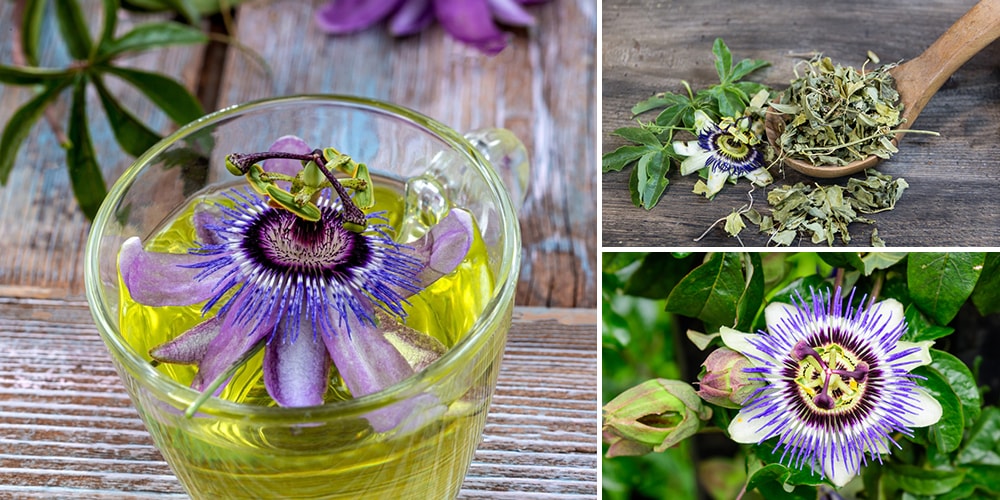
Drink A Cup of This Every Night for Better Sleep
Passionflower is a glamorous vine that bears exotic flowers. These showy flowers are used to symbolize the crucifixion of Christ represented by its petals, sepals, and filaments. Its cultivation is not only driven by its unique flowers. Passionflower also possesses extraordinary medicinal properties for inducing better sleep and stress relief.
A cup of passionflower tea every night can provide deep sleep and relaxation. It mitigates the symptoms of insomnia, anxiety, depression, and many kinds of pain. It is also helpful against menstrual disorders and hot flashes in women nearing their menopausal stage.
Taking passionflower tea increases the gamma-aminobutyric acid (GABA) in the body. It is a compound or chemical messenger that slows down the brain and limits specific signals in the central nervous system. By lowering the brain’s function and activities, this powerful sedative invites a feeling of relaxation and calmness.
Many studies continue to delve deeper into the benefits of passionflower. Some of the results validate the effectiveness of passionflower tea in anxiety which works similarly to prescription drugs.
Health Benefits of Passionflower Tea
Passionflower is an important flower for maintaining body balance and improving the outlook on life. It has many uses not just in traditional healing but also in modern medicinal practices.
Natural Painkiller
The action of the passionflower is geared towards the regulation of the central nervous system activities. It possesses a powerful analgesic and sedative for relieving short-term pain. It does not necessarily remove sensation from the body like anesthetics. But they do boost the effect of anesthesia as they fight the pain-causing chemicals in the body. Because of its potency, passionflower tea is not recommended for people who are about to undergo surgery or receive anesthetics.
Passionflower can be used locally or taken as a tea to relieve any type of pain.
Soothes Anxiety
The GABA, flavonoids and indole alkaloids present in passionflower make it an excellent neurotransmitter inhibitor. These compounds slow down the brain function to relieve anxiety and irritability. Its anti-stress property is beneficial to patients with anxiety disorders and ADHD. Passionflower also alleviates mood swings but with lower side effects than prescribed medications.
Related: Herbs to Boost Melatonin, The “Better Sleep” Hormone
Reduces Epilepsy Symptoms and Muscle Spasms
Passionflower is a powerful anticonvulsant and antispasmodic because of the actions of the chemicals on GABA actions. It also blocks the activity of glutamate which is the main cause of seizures every time it triggers the nerve cells. Studies also show that passionflower delays the occurrence of drug-induced seizures. It is beneficial for people with epilepsy, Parkinson’s disease and other related disorders.
Fights Drug Withdrawal Symptoms
Withdrawing from drug dependency affects the physiological, mental and emotional response of a person. The common symptoms include tremors, muscle pain, loss of appetite, irritability, depression, anxiety and fatigue. Some patients also exhibit paranoia, confusion and seizures.
When left untreated, the symptoms can become very dangerous. Medical detox is often performed by trained professionals on the patients. Herbal teas may also help manage these common symptoms.
Passionflower is one of the most effective natural remedies for alcohol and drug withdrawal symptoms. It cures restlessness and insomnia associated with it. The herb has a few side effects which make it at par with many modern sedatives used for drug detox.
Reduces Blood Pressure
Passionflower tea is teeming with antioxidants that promote overall well-being. Regular intake of passionflower tea simultaneously produces a range of health benefits as it lowers blood pressure. It can eventually reduce the risk of heart diseases like stroke and heart attack. Its anti-inflammatory property also aids in promoting better heart health.
Relieves Cough
Passionflower is an antitussive, or cough suppressant, effective against dry cough. Chest congestion due to cough often gets worse during the night. It interferes with sleep and leaves the patient more stressed and fatigued during the day. Taking a cup of passionflower tea could alleviate coughing for a sound sleep through the night.
⇒ How To Make A Scalable Self-Sustaining Greenhouse (Video)
Increases Libido
In traditional medicine, the passionflower is a highly valued aphrodisiac. The fruit of the plant is made into tea and taken to increase virility and libido. It has benzoflavone derivatives which increase the testosterone level and prevent its degradation. It also positively affects the estrogen level in women.
Treats Menstrual Disorders
In women, passionflower regulates the estrogen level to treat menstrual-related disorders. It eases the symptoms associated with hormonal changes like acne, tender breasts, and heavy or irregular periods. Its compounds are known to alleviate the psychological changes that come with them such as mood swings and anxiety. Passionflower has long been used for PMS disturbance, dysmenorrhea and menopause.
Soothes Gastrointestinal Problems
Gastrointestinal discomfort can be caused by indigestion, bacterial infection, or gut inflammation. The healing properties of passionflower are proven effective against many causes of gut problems. It is an anti-inflammatory herb that eases the pain to bring immediate digestive relief. It is also rich in antioxidants like quercetin, kaempferol and vitexin, which are incredibly potent in alleviating inflammation and removing free radicals. Passionflower tea can relieve hemorrhoids and prevent many types of stomach cancer.
Passionflower Tea Recipe
Ingredients: 1 tbsp. dried passionflower, 1 cup hot water, honey, to taste (optional)
Steps:
- Pour hot water over the passionflower and let steep for about 8 minutes. You can steep it for about 10 minutes or longer for a stronger and more potent tea.
- Strain and add honey or other sweeteners if desired. Passionflower tea has a mild, grassy and earthy flavor. The taste can improve when flavored with organic or floral honey.

Dosage: Take a cup of this tea an hour before bedtime for better sleep and relief from cough and pain. Drink a cup every night for 7 days for the best result.
Side Effects of Passionflower
Passionflower is likely safe for most people when taken moderately. But, excessive intake of tea and other herbal supplement forms is unsafe. The common side effects of passionflower are dizziness, nausea, vomiting, confusion and irregular muscle coordination.
Experts advised against taking passionflower before surgery or work that requires focus and coordination. It is also contraindicated in pregnant women since it can cause uterine contractions. Its safety in breastfeeding women is not yet established. For safety, avoid it while nursing.
You should not use passionflower if you are taking other medicines. It is likely to interact with depressants that could cause extreme sleepiness, lethargy and erratic heartbeat.
Takeaway
Sleep is one of the most elusive pleasures. It stems from the messed-up brain programs caused by stress, pain or mood disorders. Lack of sleep can trigger the body’s normal function which may affect productivity.
Many people turn to prescription medicines to induce sleep, but you can seek help from herbal products instead. Passionflower is among the top herbs with a potent effect in decreasing brain activities to promote better sleep.
A moderate intake of passionflower tea every night promotes calmness, relaxation and quality sleep. It relieves pain and other illnesses that may disturb a restful night. In effect, a cup of passionflower can de-stress the body, improve mood and help it function properly. It enables one to pack on more vigor and optimism to face life’s daily challenges.

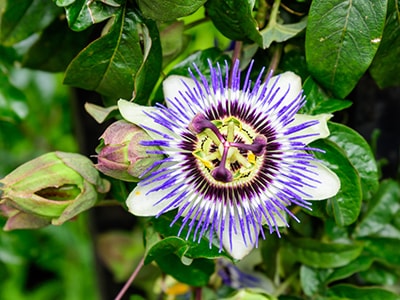
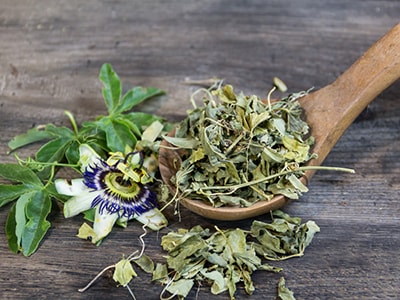
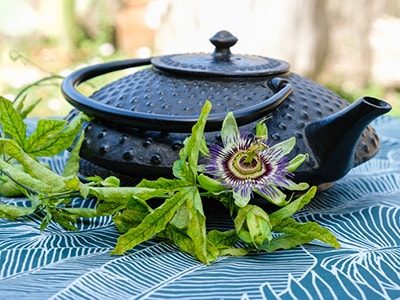
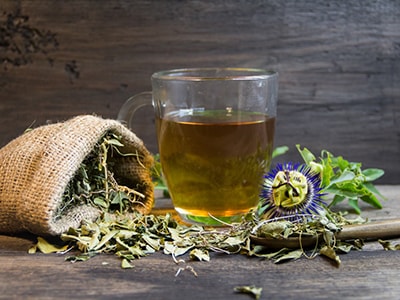
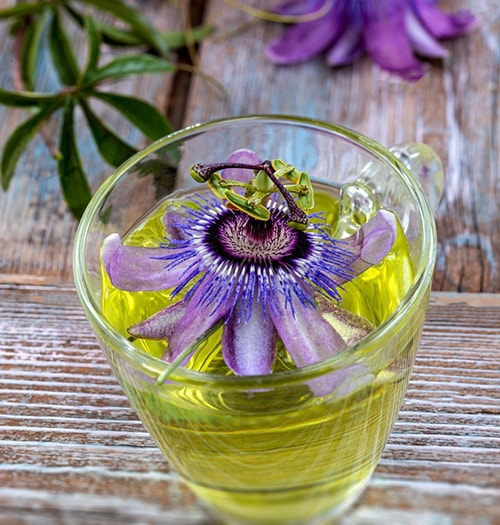
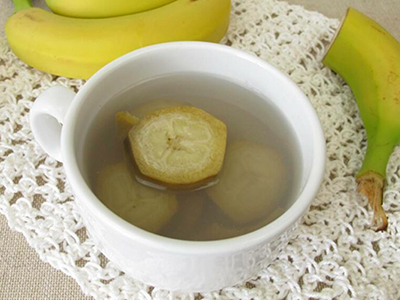
Thank you
Are you talking about the flower only or the leaves being made into tea?
Same Question – Thanks for all you do and all you share!!! – have your book, it is awesome!!! [You may explain this in the book, have not had a chance to pull it out and look. Thanks!!
Hi Dave,
Thank you for your interest in this article!
The dried leaves, stems, shoots, flowers, and all aerial parts of the passionflower are used for brewing tea.
Many blessings and good health!
where can you get passion flowers? Is there already a tea on the market?
Hi Alice,
Thank you for your interest in this article!
We recommend searching online for a health/ natural foods store near you, or one that delivers to your area.
Many blessings and good health!
I found passion flower liquid extract dropper bottle on pipping rock site if anyone is interested. Great products with great prices.
address Please
Thank you for all your amazing information, I learn on a daily basis from you. I am so grateful. I literally have passionflower growing like crazy right outside my apartment.
Hi Narea,
That’s amazing! Thank you for your kind words.
Many blessings and good health!
I have a passionflower plant – what parts can I use to make the tea? Only the flower, or the leaves as well? Do the flowers need to be dried first, or can you also make the tea from fresh flowers? Thank you for this information.
Hi Ellen,
All aerial parts of passionflower are good for tea.
The dried plant parts are most commonly used, but you can make tea out of 3 tbsp. fresh passionflower for a potent tea. Just make sure to rinse it very well beforehand.
Many blessings and good health!
In the book, for this tea, take 2 flower heads, 2-3 leaves & stem… pour 1-1/4 cup boiling water & cover. Steep 10 min. Strain & add honey. I’m guessing fresh is good! This book is a nice one to have!
Hi I’m in Australia and wondering is the stinking passion flower
https://weeds.brisbane.qld.gov.au/weeds/stinking-passionflower
the same as one you are talking about ? We also have a white passion flower
https://www.business.qld.gov.au/industries/farms-fishing-forestry/agriculture/biosecurity/plants/invasive/other/white-passion-flower
Is this edible and beneficial also ?
.. thank you 🙏🏻💜
Hi Terri,
Passiflora incarnata is the most studied species and is mainly used in herbal medicine. Both plants you mentioned contain cyanic acid and are suspected to be toxic to humans and livestock if eaten in sufficient quantities, so we suggest avoiding them.
We recommend purchasing dried Passiflora from your local health store, or from an online herb shop that delivers to your area.
Many blessings and good health!